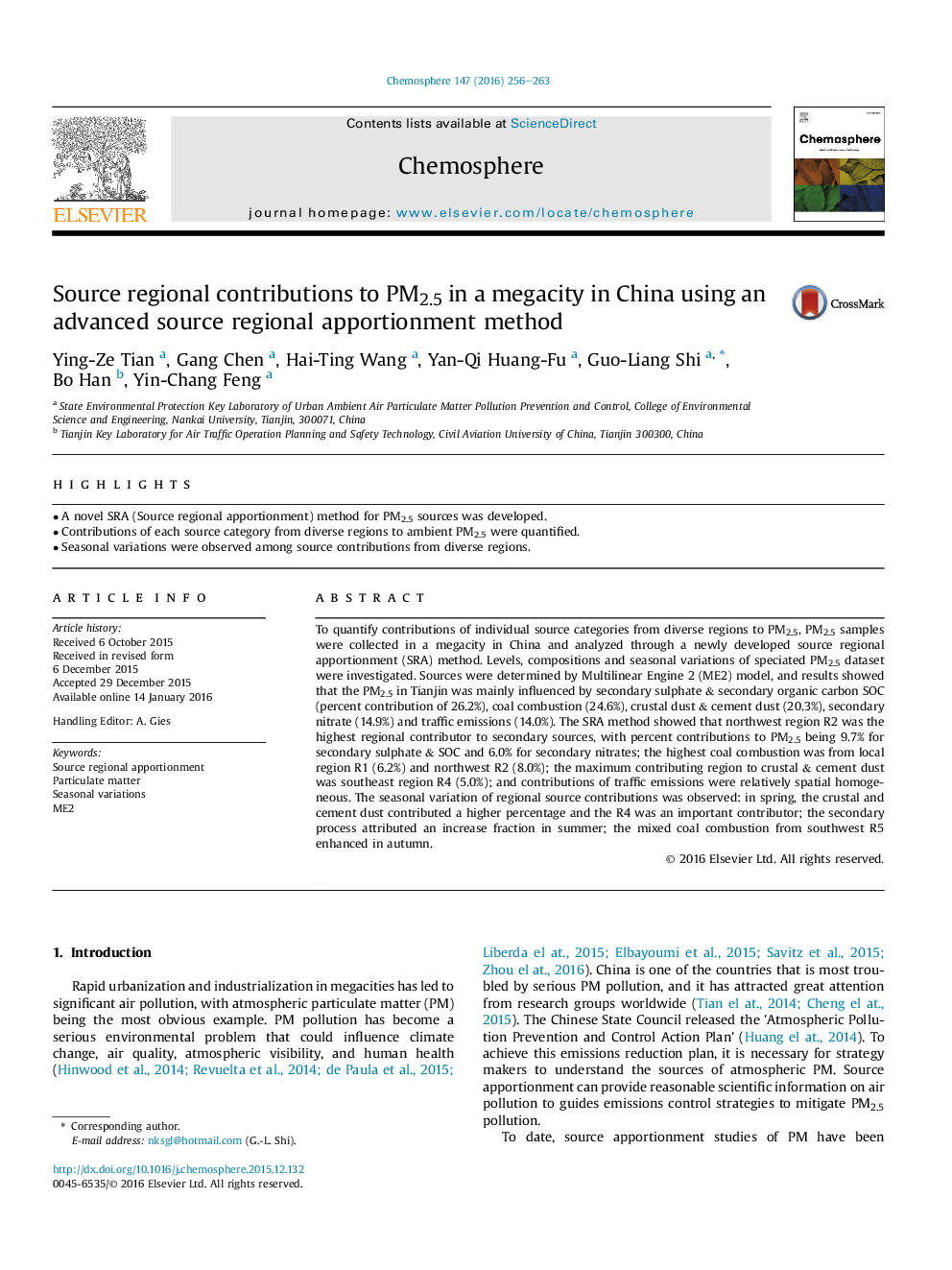| کد مقاله | کد نشریه | سال انتشار | مقاله انگلیسی | نسخه تمام متن |
|---|---|---|---|---|
| 4408017 | 1618824 | 2016 | 8 صفحه PDF | دانلود رایگان |

• A novel SRA (Source regional apportionment) method for PM2.5 sources was developed.
• Contributions of each source category from diverse regions to ambient PM2.5 were quantified.
• Seasonal variations were observed among source contributions from diverse regions.
To quantify contributions of individual source categories from diverse regions to PM2.5, PM2.5 samples were collected in a megacity in China and analyzed through a newly developed source regional apportionment (SRA) method. Levels, compositions and seasonal variations of speciated PM2.5 dataset were investigated. Sources were determined by Multilinear Engine 2 (ME2) model, and results showed that the PM2.5 in Tianjin was mainly influenced by secondary sulphate & secondary organic carbon SOC (percent contribution of 26.2%), coal combustion (24.6%), crustal dust & cement dust (20.3%), secondary nitrate (14.9%) and traffic emissions (14.0%). The SRA method showed that northwest region R2 was the highest regional contributor to secondary sources, with percent contributions to PM2.5 being 9.7% for secondary sulphate & SOC and 6.0% for secondary nitrates; the highest coal combustion was from local region R1 (6.2%) and northwest R2 (8.0%); the maximum contributing region to crustal & cement dust was southeast region R4 (5.0%); and contributions of traffic emissions were relatively spatial homogeneous. The seasonal variation of regional source contributions was observed: in spring, the crustal and cement dust contributed a higher percentage and the R4 was an important contributor; the secondary process attributed an increase fraction in summer; the mixed coal combustion from southwest R5 enhanced in autumn.
Journal: Chemosphere - Volume 147, March 2016, Pages 256–263